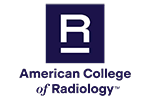Dysphagia
Dysphagia is a term used to describe the awareness of swallowing difficulties or perception of blockage during swallowing. It is a swallowing disorder commonly caused by structural and functional abnormalities of the mouth, throat, esophagus, and other organs involved with swallowing.
For oropharyngeal dysphagia with known causes, fluoroscopy barium swallow modified (x-rays are taken as an individual swallows barium liquid) is usually appropriate. Fluoroscopy pharynx dynamic and static imaging, fluoroscopy biphasic esophagram, or fluoroscopy single contrast esophagram may also be appropriate.
For oropharyngeal dysphagia with unknown causes, fluoroscopy biphasic esophagram is usually appropriate. Fluoroscopy barium swallow modified, fluoroscopy single contrast esophagram, or esophageal transit nuclear medicine scan (imaging after drinking radioactive water) may also be appropriate.
For retrosternal dysphagia (blockage or discomfort behind the sternum while swallowing) in persons with functioning immune systems, fluoroscopy biphasic esophagram is usually appropriate. Fluoroscopy single contrast esophagram, esophageal transit nuclear medicine scan, or fluoroscopy barium swallow modified may also be appropriate.
For retrosternal dysphagia in persons with compromised immune systems, fluoroscopy biphasic esophagram is usually appropriate. Fluoroscopy single contrast esophagram or barium swallow modified may also be appropriate.
For oropharyngeal and retrosternal dysphagia after surgery, fluoroscopy single contrast esophagram or CT neck and chest with contrast is usually appropriate. CT neck and chest without contrast may also be appropriate.
For oropharyngeal and retrosternal dysphagia more than 1 month after surgery, CT neck and chest with contrast or fluoroscopy single contrast esophagram is usually appropriate. Fluoroscopy barium swallow modified, fluoroscopy biphasic esophagram, or esophageal transit nuclear medicine scan may also be appropriate.
This page was reviewed on July 10, 2023


